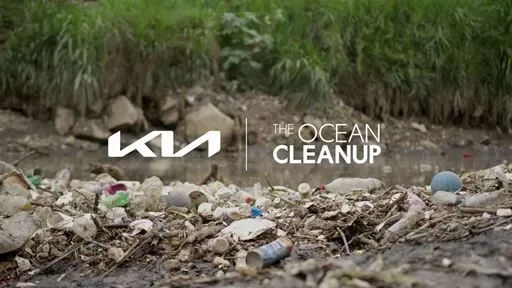The world’s oceans are facing a crisis. Every year, millions of tons of plastic waste end up in our oceans, harming marine life and causing serious damage to the ecosystem. This issue has become a global concern and calls for immediate action.
In the face of this daunting challenge, two major players have joined forces to make a significant impact. The Ocean Cleanup, a nonprofit organization dedicated to cleaning up the ocean, and Kia, a leading automotive company, have collaborated with the Guatemalan Government and other partners to prevent one of the world’s largest plastic pollution flows from reaching the ocean.
The Guatemalan Government has long been committed to protecting the environment and has taken various steps to address the issue of plastic pollution. However, with the help of The Ocean Cleanup and Kia, they are now taking a bold step towards preventing one of the world’s largest plastic pollution flows from reaching the ocean.
The project, named “Clean Guatemala – Ocean Blue,” aims to intercept and collect plastic waste before it reaches the ocean. It will be implemented in the Motagua River, which runs through Guatemala and empties into the Caribbean Sea. The river is known to carry a significant amount of plastic waste, making it a major contributor to ocean pollution.
To ensure the success of this project, The Ocean Cleanup has provided its innovative technology, the Interceptor, which is capable of extracting plastic waste from rivers and preventing it from reaching the ocean. This technology has already been successfully deployed in other parts of the world, and its implementation in the Motagua River will make a significant impact in reducing ocean pollution.
Kia, on the other hand, is providing the necessary funding for the project and is also actively involved in promoting and raising awareness about the issue of ocean pollution. The company has been a strong advocate for sustainability and has integrated environmental responsibility into its business practices.
In addition to the collaborative efforts of The Ocean Cleanup and Kia, the project has also received support from local partners and organizations, such as the Guatemalan Ministry of Environment and Natural Resources, the National Council of Protected Areas, and the Guatemalan Plastic Industry Association. This partnership between the government, private companies, and local organizations is a testament to the power of collective action and the shared responsibility to protect our planet.
The Clean Guatemala – Ocean Blue project is not only focused on cleaning up the river and preventing plastic pollution but also on creating a sustainable solution. The plastic waste collected through the Interceptor will be recycled and repurposed, creating a circular economy and promoting sustainable practices in the country.
This project is a significant step towards a cleaner and healthier ocean. It serves as a model for other countries facing similar challenges and showcases the power of partnership and innovation in tackling global issues. The impact of this project goes beyond just cleaning up the Motagua River; it will also have a positive ripple effect on the surrounding communities and the marine life that depends on a healthy ocean.
Clean Guatemala – Ocean Blue is a shining example of what can be achieved when governments, businesses, and communities come together with a shared goal. It is a reminder that we all have a role to play in protecting our environment and that small actions can make a big difference. This project also highlights the importance of investing in sustainable solutions and using technology for the greater good.
The partnership between The Ocean Cleanup and Kia with the Guatemalan Government and other local partners is a cause for celebration. It shows that change is possible, and that together, we can create a cleaner and brighter future for our planet. Let us all take inspiration from this project and do our part in keeping our oceans clean and free from plastic pollution.

